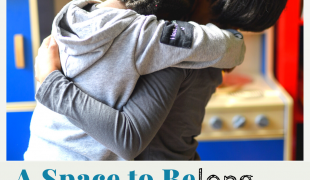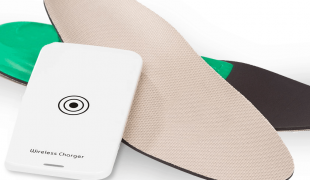- 5776
- 399
- 7
- 10
- 0
- Help Ukraine
About the solution
Engineering and physical therapy students at the University of North Florida (UNF) helped start the Adaptive Toy Project in 2014, an initiative to modify toys for young children with disabilities so they can play.
“The understanding of what each profession brings to the table is a process of learning, negotiation, and respect," says Mary Lundy, co-founder of the program and assistant professor in UNF’s physical therapy program.
The Adaptive Toy Project started because many children with disabilities such as autism, cerebral palsy, spina bifida and muscular dystrophy, are unable to play with many toys.
“Children with impaired ability to play with toys independently often experience a negative impact on their overall development, leading to depression, social isolation and lower quality of life,” Lundy says.
Each child is assessed, and the toy is made customised to fit his or her needs. Customisation is done by students who attach items to the toys, such as arm rails, backrests and joysticks. The finished toys are then distributed to the families.
Once the children have outgrown or no longer play with the toy, the families return them to the program to make them available for other children in need.
“Playing is every child’s right," says Rodriguez, a former engineering student. "Just because disabled children function differently than most does not mean they shouldn’t play, too."
The Adaptive Toy Project is supported by the Eunice Kennedy Shriver National Institute of Child Health & Human Development of the National Institutes of Health.
Adapted from: https://eu.usatoday.com/story/college/2015/10/29/student-created-toy-ini...
More information: https://www.unfadaptivetoyproject.com/
https://www.youtube.com/watch?v=bcfpseOvMt8&feature=emb_title
This solution shall not include mention to the use of drugs, chemicals or biologicals (including food); invasive devices; offensive, commercial or inherently dangerous content. This solution was not medically validated. Proceed with caution! If you have any doubts, please consult with a health professional.
DISCLAIMER: This story was written by someone who is not the author of the solution, therefore please be advised that, although it was written with the utmost respect for the innovation and the innovator, there can be some incorrect statements. If you find any errors please contact the patient Innovation team via info@patient-innovation.com
-
-
437
-
0
-
5956

Find the ALS clinical trial that's right for you with ease and confidence.
CAREGIVING
Amyotrophic Lateral Sclerosis
Website
Promoting self-management
Building Supportive Community Relationships
Promoting inclusivity and social integration
Preventing (Vaccination, Protection, Falls, Research/Mapping)
Raise awareness
Caregiving Support
Clinical Pathology
Clinical Pharmacology
General and Family Medicine
Internal Medicine
Medical Genetics
Neurology
Orthopedics
Physical Medicine and Rehabilitation
Rheumatology
United States
-
-
-
498
-
0
-
7112

Mum creates a play space as antidote to isolation for her son
Playing
Social interaction
Autism
Cervical spinal cord injury/Tetraplegia
In Person service
Strategy/Tip
Building Supportive Community Relationships
Promoting inclusivity and social integration
To improve Treatment/Therapy
Raise awareness
Caregiving Support
Child and Adolescent Psychiatry
Neurology
Pediatrics
Psychiatry
United States
-
-
-
458
-
2
-
10099

SmartSole GPS - Tracker for people with Alzheimer's, dementia and autism
COMMUNICATION: Communicating, whether by speaking, listening, or other means
WALKING: Walking
CAREGIVING
Alzheimer's Disease
Dementia (Alcoholic Dementia, Vascular Dementia)
Body-Worn solutions (Clothing, accessories, shoes, sensors...)
Difficulty coordinating movements
Loss of balance
Social withdrawal or isolation
Cognitive impairment
Memory loss
Irritability or anger outbursts
Confusion
Restlessness or feeling slowed down
Anxiety
Panic attacks
Difficulty controlling impulses
Mood swings
Feelings of guilt or worthlessness
Suicidal thoughts or behaviors
Hallucinations (perceiving things that aren't there)
Dizziness or lightheadedness
Fatigue
Restoring mobility
Promoting self-management
Building Supportive Community Relationships
Promoting inclusivity and social integration
Improving Speech and Communication
Preventing (Vaccination, Protection, Falls, Research/Mapping)
Raise awareness
Caregiving Support
Child and Adolescent Psychiatry
General and Family Medicine
Internal Medicine
Medical Genetics
Neurology
Pediatrics
Psychiatry
United States
-
 en
en